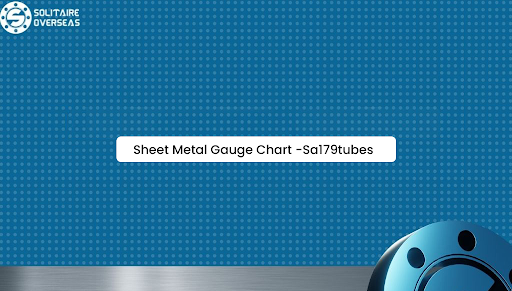
Sheet Metal Gauge Chart When working with sheet metal, you often hear the term “gauge.” For those not familiar with…

When it comes to selecting the right material for your piping application, you may often find yourself choosing between carbon steel and alloy steel. Both have their own unique properties and advantages, and understanding the differences between them can help you make an informed decision.

Carbon steel is an alloy of iron and carbon, with a carbon content ranging from 0.05% to 2.1% by weight. Carbon steel pipes are known for their strength and durability, making them suitable for a wide range of applications. They are commonly used in industrial settings for transporting fluids and gasses at high temperatures and pressures.
Alloy steel pipes, on the other hand, are made from a combination of carbon steel and other alloying elements such as chromium, manganese, nickel, molybdenum, vanadium, and silicon. These additional elements enhance the mechanical properties of the steel, making it stronger, more corrosion-resistant, and better suited for high-temperature applications.

Carbon steel pipes are commonly used in various industries such as oil and gas, petrochemicals, power generation, and manufacturing. They are suitable for general-purpose applications where high strength and durability are required.
Alloy steel pipes, on the other hand, are preferred for applications that require superior mechanical properties, corrosion resistance, and high-temperature performance. They are commonly used in industries such as aerospace, automotive, oil and gas, and power generation.
Property | Carbon Steel Pipes | Alloy Steel Pipes |
Composition | Iron and carbon | Iron, carbon, and alloying elements |
Strength | Lower | Higher |
Corrosion Resistance | Lower | Higher |
Cost | Lower | Higher |
Applications | General-purpose applications | High-temperature and corrosive environments |
In summary, both carbon steel and alloy steel pipes have their own set of advantages and are suitable for different applications. Carbon steel pipes are preferred for general-purpose applications, while alloy steel pipes are ideal for high-temperature and corrosive environments where superior mechanical properties are required. Consider the specific requirements of your application before choosing between the two materials.
Alloy steel pipe is made from steel mixed with various alloying elements, such as chromium, nickel, and molybdenum, to enhance specific properties like strength, hardness, and resistance to corrosion and heat. These pipes are used in high-stress applications, including power plants, refineries, and chemical processing plants, due to their superior performance compared to standard carbon steel pipes.
Alloy steel pipe fittings are components used to connect, redirect, or terminate pipes in high-stress environments. Made from steel mixed with elements like chromium and nickel, they offer superior strength, corrosion resistance, and heat resistance, making them ideal for industries like oil and gas, power generation, and chemical processing.
Carbon steel pipe is a durable and versatile type of steel pipe made from a combination of iron and carbon. It is known for its strength, durability, and ability to withstand high pressure and temperatures. This type of pipe is commonly used in various industries, including construction, oil and gas, and water transportation, due to its excellent performance in carrying fluids and gases. Carbon steel pipes are also relatively cost-effective compared to other types of metal pipes.

Sheet Metal Gauge Chart When working with sheet metal, you often hear the term “gauge.” For those not familiar with…

Weight Formula for Steel In the world of metals, getting the weight of steel right is like hitting the bullseye…

SPFH590 Chemical Composition SPFH590 steels, as defined by the JIS G 3131 standard, are hot-rolled steels widely used across various industries.…



